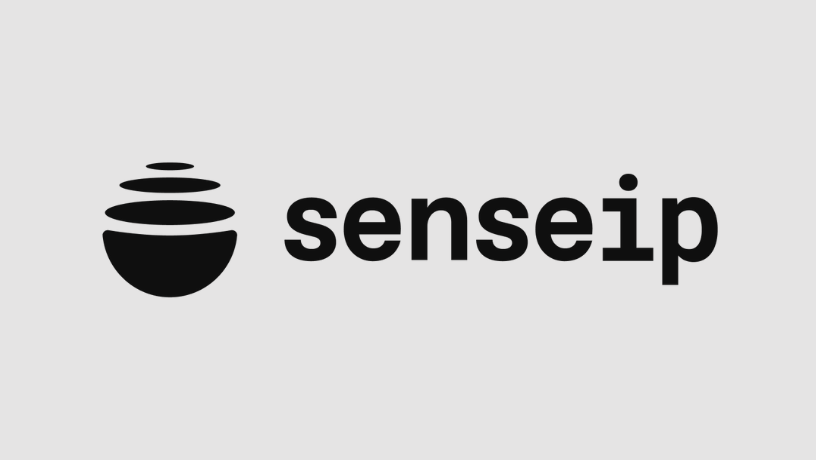Why We Invested: Vertical Insure
Customized Insurance for Vertical SaaS Platforms
The U.S. insurance market was valued at over $1.3 trillion in 2021. There is an enormous demand for the safety net that good insurance provides, but outdated technology and legacy practices have resulted in complex processes and expensive, cookie-cutter coverage. Companies and individuals end up with basic offerings that leave many needs unmet.
Vertical SaaS platforms have become the trusted operating and financial partners for the industries they serve. Customers run their entire businesses on these platforms and typically will first look to them for expanded products and services. Vertical Insure offers customized insurance options that are 100% built around vertical SaaS businesses and its customers, resulting in added value and new revenue without any extra overhead or IT bandwidth.
Rally Ventures and Dundee VC co-led Vertical Insure’s $4M seed funding round in December 2022. Vertical Insure raised an additional $2M in funding in February 2023, led by Greenlight Re Innovations.
Rally Managing Director Justin Kaufenberg recently caught up with co-founder and CEO Brock Noland. Below are edited excerpts from their conversation.
Justin Kaufenberg, Managing Director of Rally Ventures: You’re had multiple successful runs at software companies, most recently as the co-founder and CEO (and now Chairman) of phData. Why is now the right time for your next adventure?
Brock Noland, Co-Founder and CEO of Vertical Insure: I really like the early stages of building companies, where we’re finding product-market fit and onboarding early lighthouse customers. That challenge is what gets me up in the morning.
Justin: Why is Vertical Insure the right opportunity?
Brock: Insurance today is purchased from people. There really is no option to purchase insurance online. In 2022, I bought a pontoon boat. The policy was $400 and ultimately the broker only took home $60. They lost money on the transaction because the commission wasn’t worth the time it took to put the policy together. It would have been so much better to have that pontoon insurance policy embedded into the purchase process at the boat dealership, or even at the marina, as opposed to being a standalone product.
I don’t think all insurance should be embedded into the purchase process. There are many products that are better bought from a broker. But there is a whole universe of products, both on the market and not yet in existence, that should be made easily available online. It’s more cost effective and more convenient for everyone.
Justin: At SportsEngine (Justin is the Co-Founder and Former CEO of SportsEngine), we had millions of families signing their kids up for youth sports, but they had no way to get their money back in the event of illness or injury. In response to this market need, we introduced insurance products right into the embedded checkout path, which allowed moms and dads to insure their registration fee. And because we had millions of people already going through the checkout process, it was an instant success. We went from zero to millions of dollars of profit overnight. Insurance was now easy to add to the cart and it felt like a natural offering to the overall youth sports package.
You and I came to realize there are dozens of other industries, in addition to youth sports, where it just makes sense to include insurance in the checkout process.
Brock: Absolutely. Another example is that I recently booked a VRBO and the host asked for a $5K deposit. So, my choice is to either pay that deposit and give $5K to an unknown person who can then make decisions unilaterally with my money. Or, I can purchase a $99 insurance policy for the $5K deposit. I chose the insurance policy. It protects me, it protects the host — and I don’t have to fork over $5K to a stranger. There are thousands of opportunities like this out there.
Justin: There are only a few markets of this size where you have a trillion dollar industry and yet the majority of transactions are occurring through a legacy human interface. Insurance has an enormous amount of existing volume that can be converted, transacted and sold through an embedded electronic interface. Plus, there is a huge opportunity to create novel new products in vertical industries where participants are underinsured.
This is where your background in big data comes into play. How does Vertical Insure think about conceptualizing, underwriting and launching new products?
Brock: The lightbulb moment for me was in realizing how much data these vertical software platforms have on the businesses and consumers they serve. And all of this data is unused from an underwriting perspective. Unlocking that data and understanding what types of insurance are really needed is key from a new insurance product creation perspective.
Justin: The historical achilles heel in insurance is the lack of data and the lack of anticipated loss ratios, which makes it difficult to bring new products to market. At SportsEngine, we didn’t initially plan to offer an insurance product, but we absolutely had the data to underwrite one. We knew exactly how many athletes were removed from rosters following registration and how many athletes requested a refund due to some ailment or life event. We had all the data necessary, but there was no third party insurance platform that could look at our data, help us conceptualize the new product and bring it to market. Which is exactly what Vertical Insure plans to do in a number of new industries.
What about your own personal background prepared you for the entrepreneurial journey?
Brock: When I was growing up, my brothers fought over the sports page and I would grab the business page. I’ve been starting businesses since I was a kid. My first business was selling buttons at baseball games. My second business was selling Mountain Dew t-shirts on the internet. I made a lot of money doing that until I found out about IP law. Building businesses is just what I like to do. I’m fortunate to have had a series of successes and a couple of failures, too.
I’m excited about Vertical Insure because there is such a large market in insurance. There aren’t many sub $200 insurance policies currently available because there isn’t enough commission left to make it worthwhile to brokers. But there is absolutely a market for sub $200 insurance policies. I truly believe embedded insurance has the potential to create $300B in new TAM.
Justin: We’ve spent a lot of time together at the whiteboard, conceptualizing new ideas and inventing new products on the fly. Your description of yourself perfectly describes what I’ve observed. You’re a technologist by trade and became a CEO later in life, but you are very much a creator at heart — which is exactly what this company and industry needs.
Tell me a little bit about the team you’ve put together
Brock: The first hire was Dalton Conley, who I’ve worked with on a number of businesses. He’s an expert engineer. And as an engineer myself, I knew it would be easy to get into the weeds. With Dalton, I don’t have to do that because I know he has everything under control.
Ken McGinley is our VP of Customer. He’s very much the cultural heart of this business. Ken is very comfortable selling early on while we’re still building the product. And he’s built a great team so far. He brought on Braden Schrupp, for example. In early stage companies, we do a lot of founder-led deals, but Braden and his team have been closing deals on their own which is incredible at this stage.
John DelSignore is our head of insurance. He comes from Liberty Mutual and is basically unflappable. We throw a lot of things at John, and he’s very comfortable with finding carriers for the multiple product demands coming from our sales team.
The team at Rally has also been critical. You and Greg Blasko have been deeply instrumental from both an introductions standpoint and because of your deep operational and strategic expertise.
We have a great team. We get along, but we’re not afraid to challenge each other.
Justin: You’ve built a great team culture. I’ve always felt that the best ideas come from teams who are comfortable bringing forward different viewpoints and having respectful conflict.
I’m also very grateful to have Greg Blasko on the team. He was our co-founder and CTO at SportsEngine and now he’s the co-founding CTO and architecture advisor for Vertical Insure. When you’re building a company like Vertical Insure, which is API first and exists to pull in data from many different sources and then embed on the front end into many different partner applications, you can’t make mistakes in architecture. Greg built this infrastructure before at SportsEngine, built it again at another insurance company that he recently sold, and now he’s with us, which gives me a lot of confidence.
You’re a multiple time founder and now you’re back at it again. What advice would you give to other founders just starting out?
Brock: My first piece of advice is before you do anything, sell. If you can get a customer in the door without a product, you’re on to something. And if you can’t, you might want to rethink that idea. My second piece of advice is to make sure you work with investors who provide value beyond the capital. The highest price is not the most important factor. When you take money from a VC, it’s a marriage. Spend time with the investment team before you take money and make sure it’s a team with whom you can go the distance.
Justin. We agree with that advice! My last question: What are you reading right now?
Brock: I’m reading Peter Attia’s book, Outlive: The Science & Art of Longevity. He’s translating the edge of medical science for everyday people. His podcasts are 3-4 hours long and super technical, but his book distills everything he’s learned in a more consumable medium. Peter’s perspective is that medicine today is extremely reactive. He feels the future of medicine is using the tremendous number of diagnostic tests we currently have available to operate in a more data driven, proactive way.



